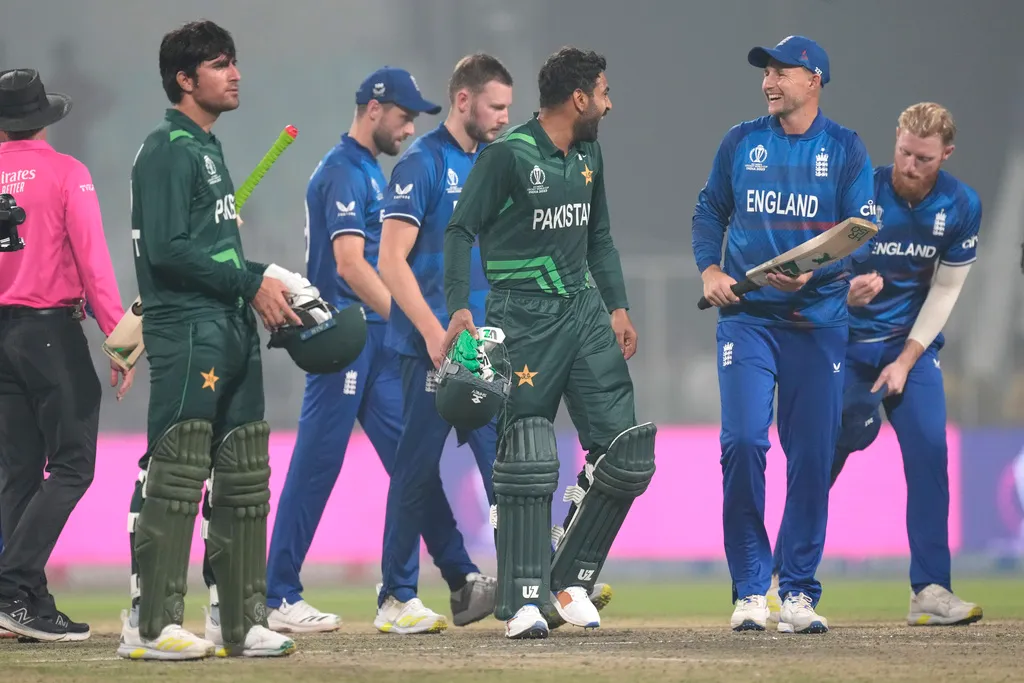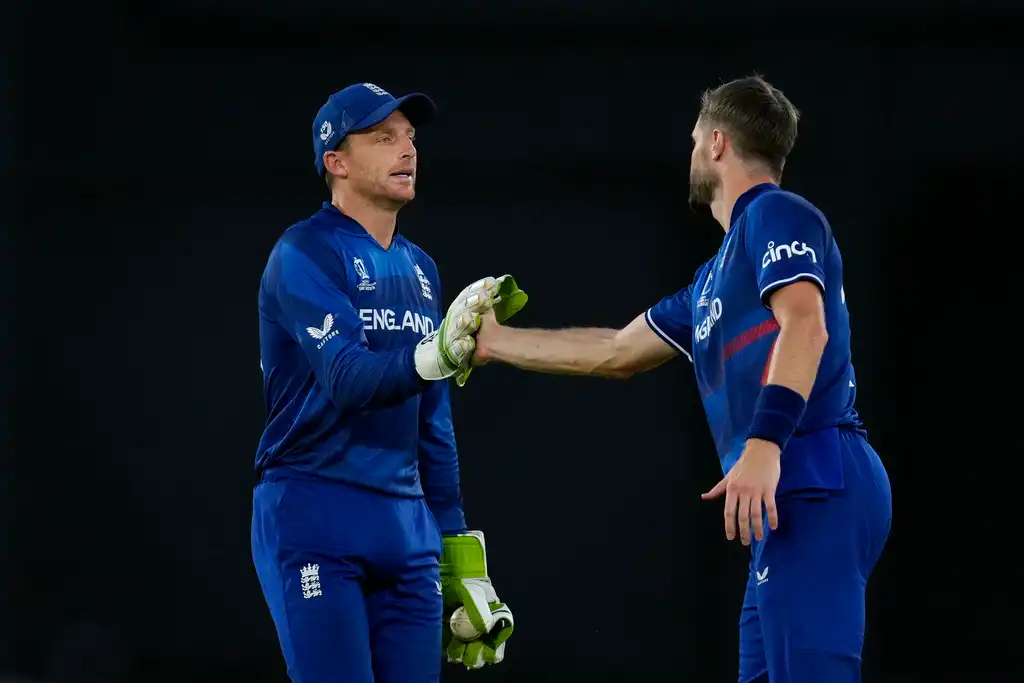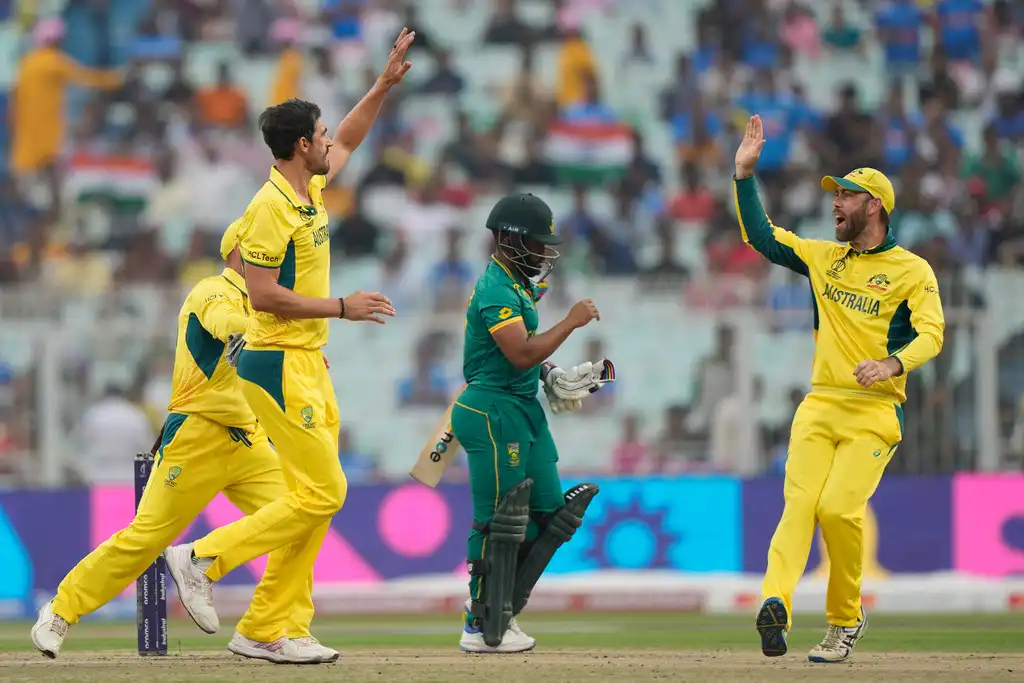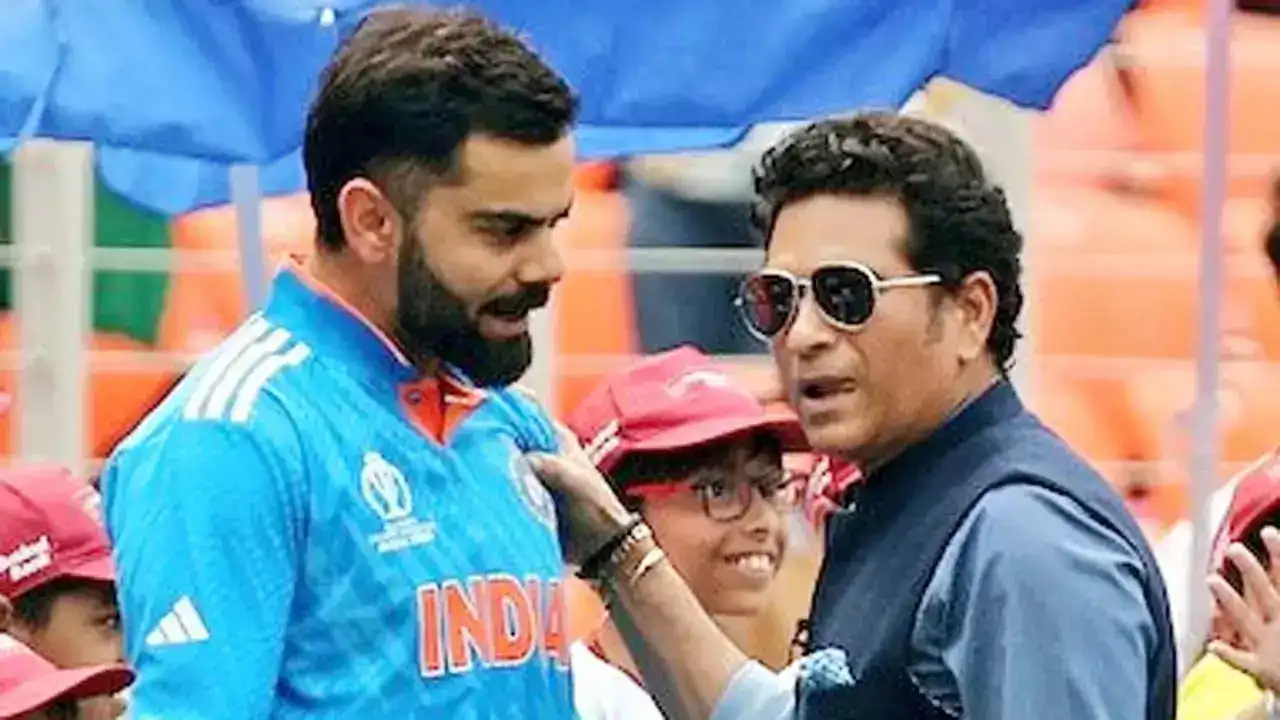
First things first. This was, finally, more like the England we had hoped to see from the start of the World Cup 2023. Many reasons have been put forward for their disastrous title defence, including age, exhaustion, contract distractions and over thinking (some would say muddled thinking) on and off the pitch. All have merit, but against Pakistan at least, there was an ‘end of term’ freedom in England’s approach that had them looking more like their old selves. For some of this England team, it is not just the end of term, but the end of their England career. That is certainly true for David Willey, denied a central contract and yet a stand out performer in India where others have so dismally failed.
As the still unfit Jofra Archer, headed for home with a two-year contract, the overlooked Willey has got his head down and focused on doing the best he could for his team. Only the stricken Reece Topley has a better bowling average for England in this World Cup. Against Pakistan, Willey again bowled with aggression and control, rewarded by vital wickets. His opening salvo accounted for both Abdullah Shafiq and New Zealand destroyer Fakhar Zaman, for just one run between them, before his final international wicket, a landmark 100th, ended the resistance of Pakistan top scorer Agha Salman. With the bat, Willey positively bristled with righteous anger. His 15 off just 5 balls blazed in defiance. Whatever the result, he was not content to slip away quietly. His point, in a man of the match performance, was resoundingly made and won’t have been lost on Rob Key.
Generally, as a unit, admittedly against a side whose theoretical semi-final chance had been all but ripped from under them by losing the toss, England showed collective resolve as the top six all posted runs, led inevitably, by Ben Stokes. There wasn’t a century amongst them however and even in victory, that tells its own story. Ben Stokes and Dawid Malan have registered England’s only two in the tournament. With the ball, Willey was admirably backed up by Woakes, Rashid, Atkinson and Ali.
Not for one minute will anyone and certainly not Rob Key, believe that two late wins, achieved when semi-final qualification had gone, together with hauling themselves to the Champions Trophy, are consolation for the utterly dismal showing that had preceded them. Few title defences can have been worse in any sport, let alone just cricket. Leyton Hewitt in 2003, still holds the unwanted record of being the only man to lose in the first round of Wimbledon as a defending champion. France, the 1998 football World Cup holders, crashed out at the group stage four years on. Both spectacularly bad, but England cricket fans will argue that the six weeks of relentless misery heaped upon them in India has been both more calamitous and certainly more protracted.
England’s three victories came against Bangladesh, who finished ninth, Netherlands who despite their commendable courage finished bottom and Pakistan who only just pipped Afghanistan to fifth place. That the two final wins came after any qualification hope had been lost, suggests double World title holders deeply uncomfortable with the burden of that success, despite Jos Buttler’s pre-tournament protestations to the contrary.
To his credit, Rob Key was quick to shoulder blame and shield his battle-scarred troops and their leaders. He has admitted that the focus on Test and T20 cricket had brought success, but at the cost of the longer white ball format. Since winning the World T20 at the MCG, only once, have Mathew Mott and Jos Buttler had their best fifty over side available and that was not until the September home series against New Zealand.
He has also admitted to assuming that come the start of the World Cup, a team as good as England would somehow “slip into old habits and away we go”. Hindsight has shown how misguided it was to think they could approach World Cup games like T20s. None of Liam Livingstone, Sam Curran or Moeen Ali, all T20 specialists, suggested anything other than a poor return.
Not lost on Key was just how poor some of the thinking and decision making has been. Focusing on the potential impact of dew and ignoring the fact that sweltering heat was infinitely the greater evil for teams fielding first was the ultimate case in point. Ignoring the first lesson and doing it a second time really was bordering on lunacy. As Noel Coward observed , only mad dogs and Englishmen go out in the mid - day sun.
To reinvigorate England’s One Day team, when hamstrung by contracts already awarded is the thorniest of tasks. Bairstow, Curran, Livingstone, Root, Ali, Stokes, Malan, Wood and Woakes all have questions over their heads based on age, form and indeed capacity. England’s top run scorer in this World Cup, Dawid Malan will be forty by the next World Cup and thus almost certainly a non-starter. Ben Stokes, who will now undergo the vital surgery to allow him to continue to lead England’s Test team, will surely forgo further fifty over duties.
For the forthcoming series in the Caribbean, only six of England’s World Cup squad are included. In come the likes of Zak Crawley Ollie Pope and Ben Duckett, successes in England’s dynamic new Test set up. Harry Brook will have his chance to shine and the likes of Rehan Ahmed, Gus Atkinson, Brydon Carse, Will Jacks, Tom Hartley, Josh Tongue and John Turner present exciting and younger hope for the future.
For England, a magnificent era in limited over cricket has ended. But as new talent emerges, one must hope that Rob Key and the coach and captain he has publicly backed can navigate the choppy waters of global franchises and exhausting schedules to mould future success.





.jpg?type=mq)
